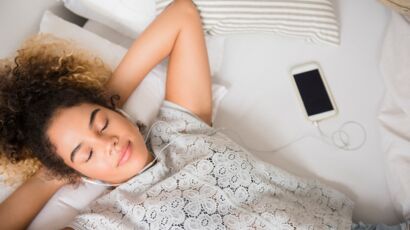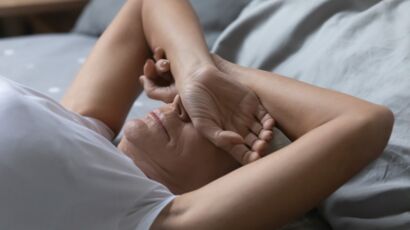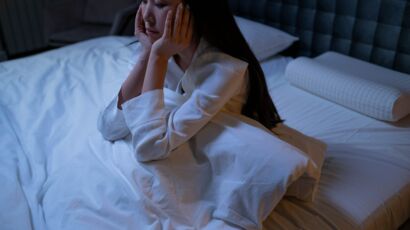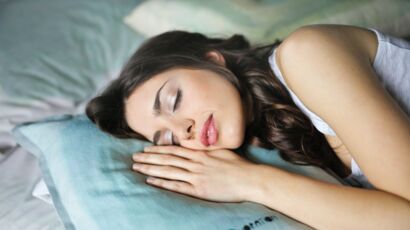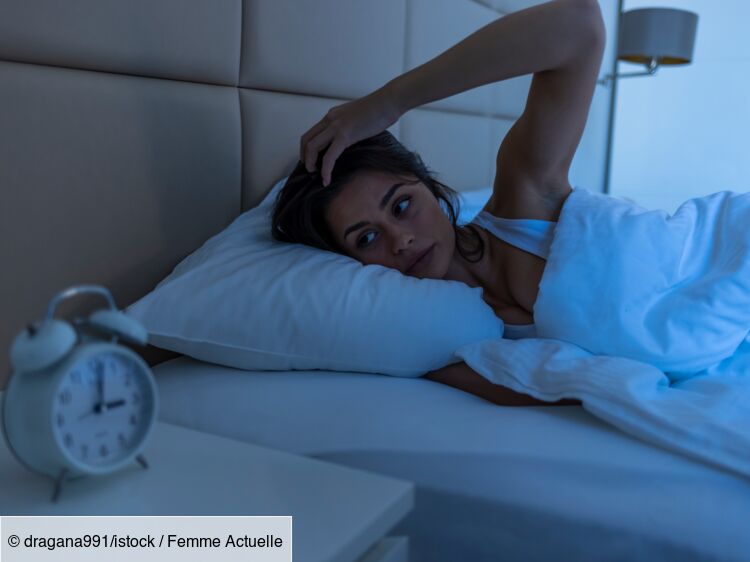With age, sleep can become more hectic, jerky and sometimes even dreaded. With the arrival of menopause, and biological aging, this one is all the more upset. Indeed, according to a recent British survey carried out in October 2023, more than 2 in 3 women lose 2.5 hours of sleep per night, which represents 37 days lost in a year. Of the insomnia regular or temporary symptoms directly caused by a hormonal upheaval (gradual end of menstrual cycles, heat and other symptoms), which are sometimes difficult to control. Questioned in the columns of the magazine HealthShots.Dr. Hira Mardi, specialized in gynecology, shared several good gestures and habits to adopt to regain good sleep.
Sleep better during menopause: the sleep environment is important
In order to find soothing nights and restful sleep, it is important to take your environment into account sleep. In other words, we pamper your bedtime ritual and we forget everything that can stimulate the mind, like lights and noise. Rather favor a serene and soft spacewith some temperatures not too hot, no light and total silence, recommends Hira Mardi. To promote this environment, you can opt for earplugs, an eye mask, blackout curtains or even a white noise machine. Furthermore, sleeping on a comfortable mattress and pillows is not insignificant, especially if you experience night sweats. The doctor also advises always follow the same sleep schedule. From Monday to Sunday, slip into bed at the same time and try to wake up at a set time as well. This habit will help regulate your internal biological clockwhich changes with age.
How to combat stress, the enemy of sleep?
It’s well known, stress is the enemy of rest. Excessive stress can lead to sleepless nights, just as insomnia can promote stress. To combat this tension, the doctor recommends engaging in leisure activities, practice yoga or to spend time in nature. You can also practice relaxation techniques before you go to bed, like “deep breathing exercises, meditationprogressive muscle relaxation“, lists the professional.
Diet and physical activity to promote sleep
A good night’s sleep also depends on the day’s schedule. Diet plays a key role in particular in the quality of sleep. The doctor recommends observing how the body reacts to meals throughout the day, andadapt your diet accordingly. Moreover, certain foods and drinks should be avoided, such as caffeine, spicy foods and alcohol, which can trigger hot flashes and disrupt sleep. Finally, also take physical exercise into account. As Hira Mardi explains, practice regular physical activity can help alleviate the symptoms of menopause and thus improve sleep. “Get at least 30 minutes of moderate-intensity exercise most days of the week“, she specifies. On the other hand, the expert recommends avoiding excessively intense exercises as bedtime approaches, so as not to overstimulate the body.


